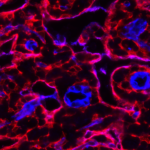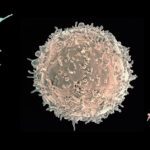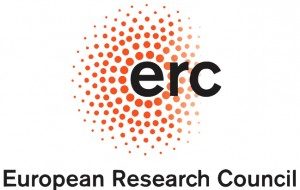About
Cancer is increasingly recognized as a multifactorial disease, resulting from a dysregulated communication between different cell types of the tumor microenvironment, including cancer cells, innate and adaptive immune cells, as well as heterogeneous populations of stromal cells, altogether modulated by the host metabolism and the microbiota. Our previous investigations highlighted a critical role for ADAM9 and ADAM12 in prostate tumor progression, notably by altering the tumor-stromal crosstalk through shedding of growth factors essential in tumor proliferation and differentiation (such as EGF and FGFR2iiib).
We have recently shown that ADAM12+ mesenchymal cells play a key role in inducing an immunosuppressive tumor microenvironment by promoting pathological angiogenesis and hypoxia, in coordination with tumor macrophages (Di Carlo et al., Nature Immunology 2023).
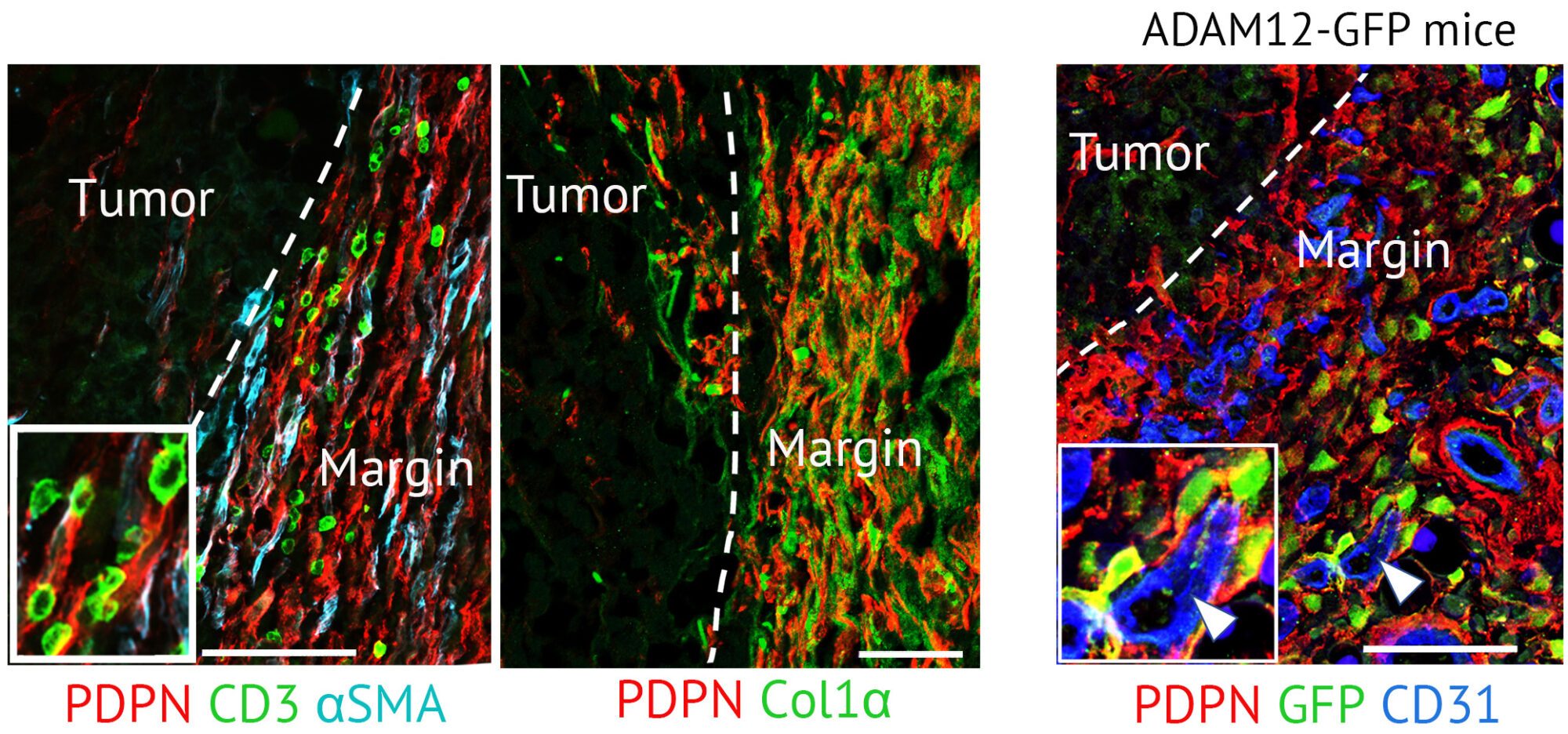
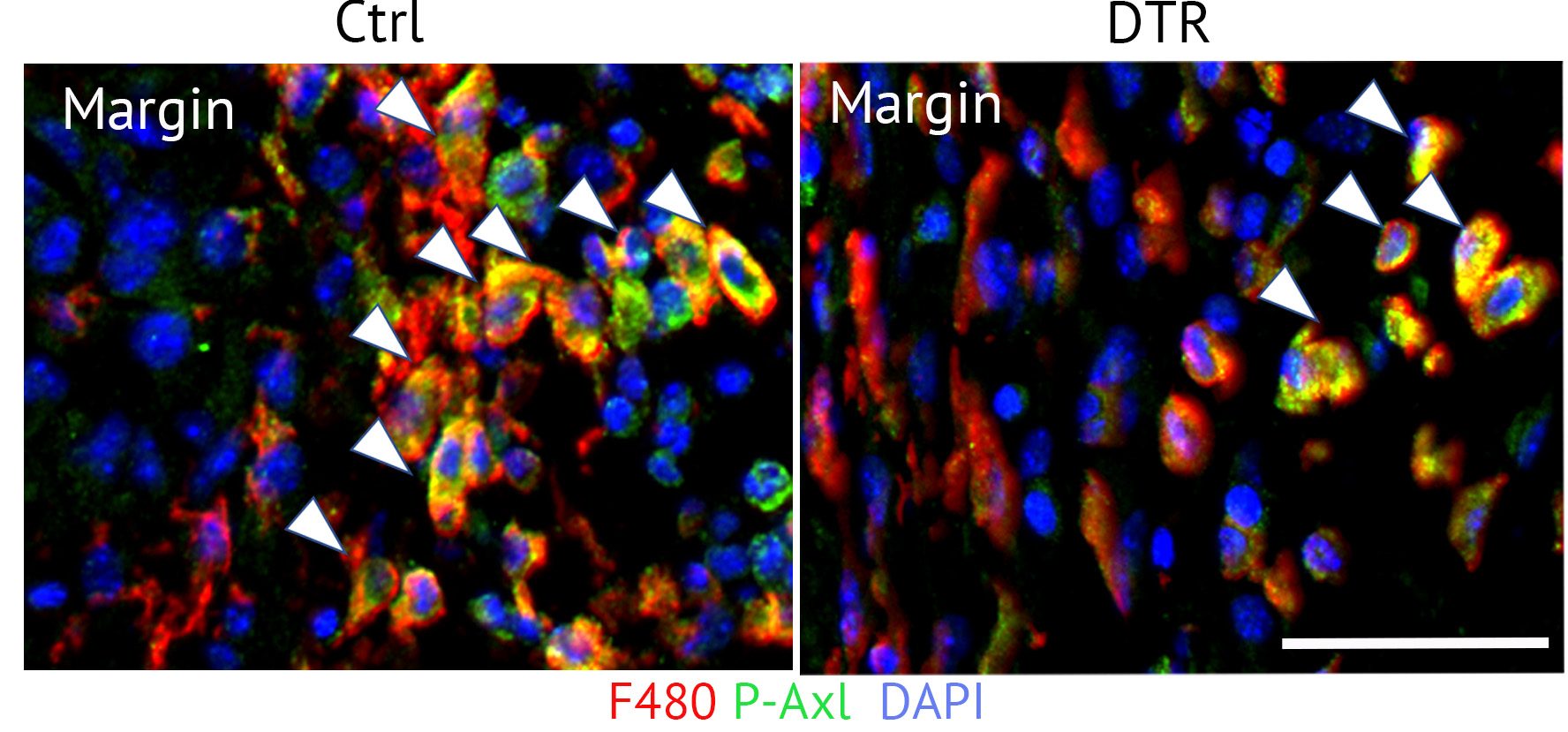 Decrease in tumor immunosuppressive macrophages expressing phosphorylated AXL (red and green) when depleting ADAM12+ mesenchymal cells (DTR, right). (Di Carlo et al., Nature Immunology 2023)
Decrease in tumor immunosuppressive macrophages expressing phosphorylated AXL (red and green) when depleting ADAM12+ mesenchymal cells (DTR, right). (Di Carlo et al., Nature Immunology 2023)
Using different experimental approaches, including transcriptomic analysis at the single cell resolution, epigenetics, proteomics and pharmacological approaches, we are further exploring stromal heterogeneity and function in tumor immunity/progression and therapeutic resistance to anti-cancer treatments. We are investigating different tumor microenvironment, including breast cancer, pancreatic cancer and melanoma to assess stromal organ specificities.
Improving cancer immunotherapies
Immunotherapy is a type of cancer treatment that helps your immune system’s natural ability to fight cancer. Some immunotherapies, such as immune checkpoints inhibitors, showed notable success in cancer treatment. However, the response is often partial and efficacy remains low in certain cancers, notably due to the development of resistance mechanisms within the tumor microenvironment. We are investigating novel approaches targeting the tumor stromal microenvironment to improve efficacy of immunotherapy in resistant cancers such as pancreatic cancer.
